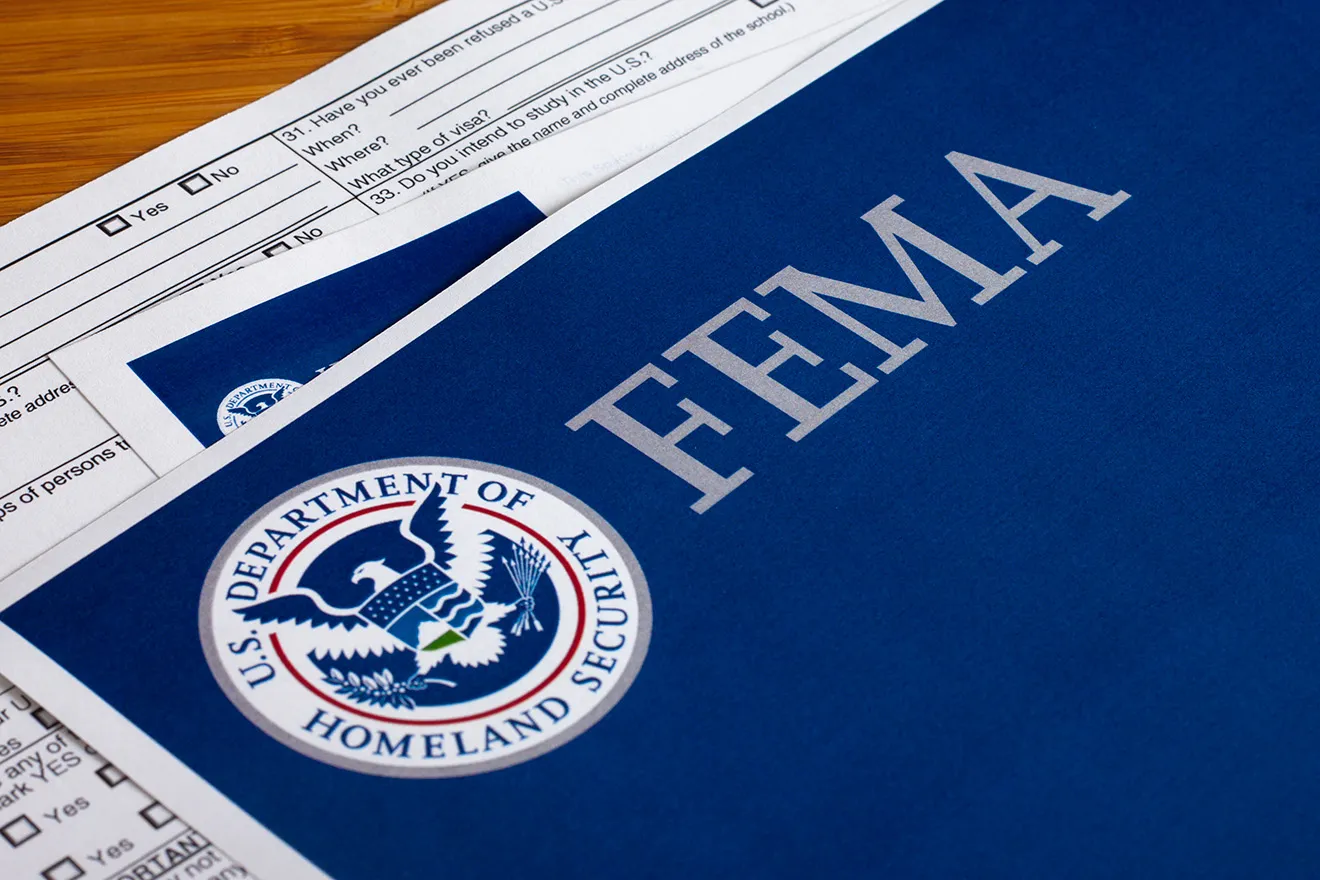
Daily Audio Newscast Afternoon Update - November 6, 2025
© INDU BACHKHETI - iStock-1336427297
News from around the nation.
US shutdown sends airlines scrambling as travel chaos looms; Pairing Hmong economic future in MN with historic election; MA lawmakers urged to protect higher ed jobs from federal cuts; Historic NM mission church being preserved brick by brick.
Transcript
The public news service Thursday afternoon update.
I'm Mike Clifford.
US airlines are scrambling today to change schedules and fielding a flood of customer queries that after the US ordered flight cuts at some of the nation's busiest airports.
The latest travel disruption from the prolonged government shutdown, that from Reuters.
They report the transportation secretary, Sean Duffy, said Wednesday he would order steep cuts citing air traffic control safety risks.
The shutdown now the longest in US history has forced some 13,000 air traffic controllers and 50,000 security screeners to work without pay, raising fear of travel disruptions during the upcoming Thanksgiving holiday.
Meantime, on the heels of this week's historic election victory, Minnesota's Hmong population sees more opportunities to dream big 50 years after refugees began arriving here.
On Tuesday, St. Paul elected its first female and Hmong mayor in city history.
Democrat Kali Her is currently a state lawmaker and will soon be sworn in to lead Minnesota's capital city.
As a young child, she and her family emigrated from Laos, joining a large Hmong resettlement to this region following the Vietnam War.
Minds of Tao leads Minnesota's Hmong-American Partnership.
She predicts growth in leadership posts moving forward.
Our Hmong community has really hopped onto this notion that I can be part of making change.
In Minnesota, Tao hopes having a bigger voice and elected posts, including school board and city council seats too.
I'm Mike Moen.
And Massachusetts educators are urging state lawmakers to protect jobs and higher education as federal funding cuts continue.
Introduced legislation would dedicate $400 million from the state's Rainy Day Fund and revenue from the state's Fair Share Amendment to prevent further layoffs and continue research and clinical trials.
Eve Weinbaum, a professor of sociology and labor studies at the University of Massachusetts Amherst as the state's reputation for excellence in learning is on the line.
There is a pool of money that is available to be used for public higher education.
And so we think this is a really fortunate opportunity at this moment.
A recent report estimates more than 3,300 jobs are at risk due to the loss of federal dollars.
I'm Catherine Carley.
In Northern New Mexico, indigenous Pueblos, national park staff, and volunteers are working to preserve a 300 year old Adobe church With only three walls and no roof, some might mistake the Pecos Mission Church for a ruin, but it remains an important spiritual and cultural site.
Tana Walters leads the masonry preservation crew.
Adobe exposed to the elements will eventually just melt into the ground.
That's what's at risk.
Each year, seasonal workers hired by the National Park Service help archaeologists open up walls and replace crumbling adobe bricks with an emphasis on preserving what remains of the original structure.
This story produced with original reporting by Anya Petron Slepyan for the Daily Yonder.
This is Public News Service.
A new report warns Pennsylvania's early childhood education system is in crisis, threatening children, families, and the state's economy.
The 2025 state of early care and education in Pennsylvania finds more than 160,000 eligible children lack access to quality programs.
Maggie Livellsberger with Pennsylvania Partnerships for Children says the report reveals families can't find or afford care while low pay is driving educators out of the field.
Some of the biggest findings are just how many families are really in search of care. 72 percent of families with children under the age of six have all available caregivers in the workforce.
And so they need to be able to access child care and pre-K programs to be able to go to work.
Livellsberger says Pennsylvania loses about $6.65 billion each year due to child care shortages, a loss she says hurt both families and the state's overall economy.
Danielle Smith reporting.
And New York academics are part of a nationwide protest of a controversial definition of anti-Semitism.
Some examples of what the International Holocaust Remembrance Alliance's definition considers anti-Semitism include speaking against Israel or its government policies.
But by claiming it's anti-Semitic.
Academics are protesting the definition by violating the examples relating to Israel.
Dr. Jonah Rubin with Jewish Voice for Peace says this definition ignores the truth.
If you're engaged in Holocaust studies, you will be doing comparative work around genocide and that is banned under the IHRA.
If you are teaching anything about Palestine-Israel, you have to self-censor in order to comply with the IHRA.
He says political advocacy, research, and other teaching around holding Israel accountable for what it's done in Palestine is banned under the IHRA definition.
There are concerns about the definitions used by the Trump administration along with advocates such as Rubin.
Kenneth Stern who wrote the definition condemns the administration's use of it saying it does more to censor pro-Palestinian speech than protect Jewish students.
I'm Edwin J. Viera.
Finally as the Postal Service marks its 250th anniversary, Ohio postal workers are urging cities and counties to pass proclamations recognizing its public mission and opposing efforts to privatize mail delivery.
Angela Lisch is a retired postal worker and member of the Ohio State Auxiliary of the American Postal Workers Union.
She says residents often don't realize what's at stake.
Everybody should care.
You know, it goes from the customers to the employees, even out of our country, because right now we are regulated. if it's privatized, they can pretty much do what they want to do.
The Postal Service operates without taxpayer funding, relying instead on postage and product sales.
Farah Siddiqui reporting.
This is Mike Clifford for Public News Service, member and listener supported.
Find our trust indicators at publicnewsservice.org.















